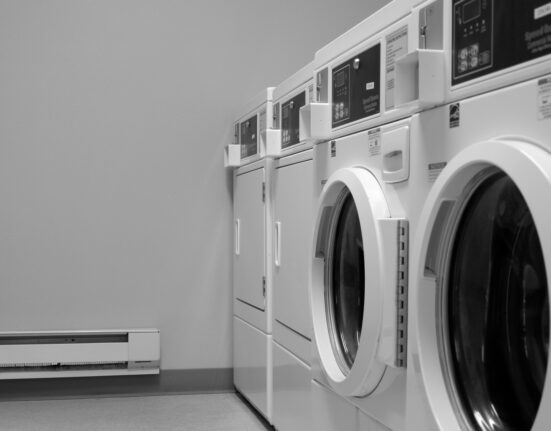In today’s hyper-connected world, technology is an omnipresent force shaping various aspects of our lives, including our mental well-being. For tech enthusiasts, mental health advocates, and digital wellbeing natives, understanding the nuanced relationship between technology and mental health is crucial. This blog post delves into how technological advancements influence our mental health, the concept of digital well-being, ongoing innovations, and emerging research in this field.
The Double-Edged Sword: Technology and Mental Health
Technology has revolutionized how we communicate, work, and entertain ourselves. However, its impact on mental health is multifaceted, functioning as both a boon and a bane.
Positive Impacts
- Access to Information: The internet has democratized access to information about mental health, making resources, support groups, and professional help more accessible than ever.
- Telemedicine: The advent of telehealth services allows people to consult with mental health professionals from the comfort of their homes, breaking geographical barriers.
- Mental Health Apps: Numerous apps are designed to promote mental well-being through meditation, mood tracking, and cognitive behavioral therapy (CBT) exercises.
Negative Impacts
- Screen Time: Excessive screen time has been linked to sleep disturbances, increased stress levels, and reduced physical activity, all of which can adversely affect mental health.
- Social Media: While social media connects us, it also fosters a culture of comparison, leading to anxiety, depression, and low self-esteem, especially among younger demographics.
- Cyberbullying: The anonymity of the internet can lead to harmful behaviors like cyberbullying, which has severe mental health repercussions.
Digital Well-Being: A New Paradigm
As technology continues to evolve, so does the conversation around digital well-being a holistic approach to using technology that promotes mental and emotional health.
Components of Digital Well-Being
- Mindful Usage: Being conscious of how and why we use technology can help mitigate its negative effects. Setting boundaries, such as designated screen-free times, can make a significant difference.
- Balanced Interaction: Striking a balance between online and offline activities ensures that technology serves as a tool rather than a crutch.
- Positive Content: Curating a digital environment filled with positive, uplifting content can improve mental health. This includes following supportive communities and engaging with educational material.
Tools for Digital Well-Being
- Digital Detox: Periodic breaks from screens can reset our mental state and reduce digital fatigue.
- Well-Being Features: Many devices now come with built-in well-being features, such as screen time trackers and app usage limits, to help users manage their digital habits.
Innovation in Mental Health Technology
Innovation is at the heart of the evolving relationship between technology and mental health. Here are some groundbreaking advancements making waves:
Artificial Intelligence (AI)
- Chatbots for Therapy: AI-powered chatbots like Woebot and Wysa offer cognitive behavioral therapy (CBT) techniques and emotional support on demand.
- Predictive Analytics: AI is being used to predict mental health crises by analyzing patterns in speech, social media behavior, and search history, enabling early intervention.
Virtual Reality (VR)
- Exposure Therapy: VR is revolutionizing exposure therapy for conditions like PTSD and anxiety by providing controlled, immersive environments for patients to confront their fears.
- Mindfulness Training: VR platforms are also being used for mindfulness and relaxation training, offering immersive experiences designed to reduce stress and improve focus.
Wearable Technology
- Health Monitoring: Wearable devices like smartwatches can monitor physiological indicators such as heart rate variability and sleep patterns, providing insights into one’s mental health.
- Biofeedback: Devices offering biofeedback can help individuals understand their stress responses in real time, enabling better stress management strategies.
Research and Future Directions
Emerging research continues to shed light on the complex interplay between technology and mental health, offering new avenues for intervention and support.
Key Research Findings
- Screen Time and Mental Health: Studies show that while excessive screen time is detrimental, moderate use of technology, particularly for social interaction and educational purposes, can have neutral or even positive effects.
- Social Media Use: Research indicates that the quality of interactions on social media (rather than the quantity) is a critical determinant of its impact on mental health. Positive interactions can enhance well-being, while negative interactions can exacerbate mental health issues.
Future Directions
- Personalized Interventions: As AI and machine learning advance, there is potential for highly personalized mental health interventions tailored to individual needs and behaviors.
- Integration with Healthcare: Greater integration of mental health technologies with traditional healthcare systems could provide more comprehensive and continuous care.
- Ethical Considerations: Ongoing research must also address ethical considerations, such as data privacy and the potential for algorithmic bias, to ensure that technology serves as an equitable tool for mental health support.
Conclusion
The influence of technology on mental well-being is a dynamic and evolving field, offering both challenges and opportunities. By understanding the dual nature of technology’s impact on mental health, adopting mindful digital habits, and embracing innovative solutions, we can harness the power of technology to enhance our mental well-being.
For tech enthusiasts, mental health advocates, and digital natives, staying informed and proactive is key to navigating this brave new world. Let’s embrace technology not as a master, but as a tool that, when used wisely, can lead to a healthier and happier life.








Leave feedback about this